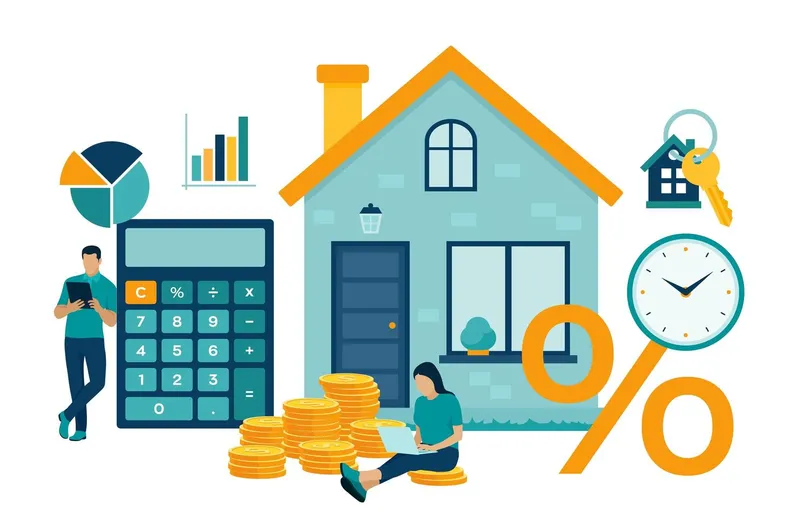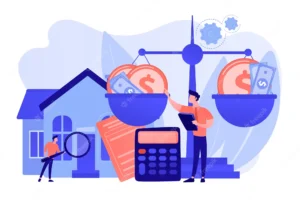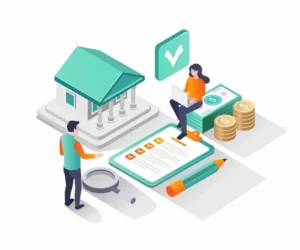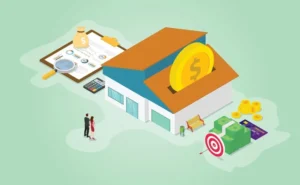Demystifying the Mortgage Closing Process: A Step-by-Step Guide

Purchasing a home is an exciting milestone in life, but it often comes with a sense of complexity, especially when it comes to the mortgage closing process. However, understanding this process is crucial because it can make the difference between a smooth transition to homeownership and unexpected hurdles along the way.
Contents
- Understanding the Mortgage Closing Process
- Preparing for the Closing
- Setting the Time and Location
- Parties Involved in the Closing
- Reviewing and Signing Documents
- Conducting the Closing Meeting
- Post-Closing Responsibilities
- Common Challenges and How to Overcome Them
- Conclusion
- 5 common questions about the mortgage closing process and their answers
- 1. What does the mortgage closing process entail?
- 2. How long does the mortgage closing process typically take?
- 3. What documents are typically involved in the mortgage closing process?
- 4. What costs should I expect during the mortgage closing process?
- 5. Can I negotiate the terms and costs during the mortgage closing process?
Understanding the Mortgage Closing Process
What the Mortgage Closing Process Entails
The mortgage closing process is the final step in buying a home, where all parties involved come together to complete the sale. This stage involves reviewing, signing, and exchanging essential documents and funds.
The Significance of a Successful Closing
A successful closing is not just about sealing the deal; it also ensures that all legal and financial aspects are addressed correctly. This step paves the way for you to take ownership of your new property.
Preparing for the Closing
Tasks and Preparations in the Weeks Before Closing
In the weeks leading up to the closing date, several crucial tasks must be completed. These include a final walkthrough of the property, resolving any contingencies, and addressing any potential issues that may arise.
Gathering Necessary Documents
To ensure a smooth closing, gather all the required documents, such as identification, financial statements, and insurance policies.
Setting the Time and Location
Selecting the Time and Location
Choosing the right time and place for the closing meeting is essential. Consider factors such as your schedule, the seller’s convenience, and any local regulations governing closing meetings.
Parties Involved in the Closing
Individuals and Professionals Participating in the Closing
Multiple parties play significant roles in the closing process, including the buyer, seller, real estate agents, and closing agents.
The Role of the Seller, Real Estate Agents, and Closing Agents
Each party has specific responsibilities and obligations during the closing, ensuring that the process runs smoothly.
Reviewing and Signing Documents
The Heart of the Closing Process
The core of the closing process is the review and signing of essential documents. These documents include the mortgage agreement, promissory note, and various disclosures.
Critical Documents to Review and Sign
Understanding the purpose of each document is crucial. Commonly, you’ll encounter documents related to the mortgage, the property itself, and the terms of the sale.
What to Look for Before Signing
Before signing anything, carefully review the documents to ensure accuracy and consistency with your expectations and agreements.
Conducting the Closing Meeting
The Final Meeting Before Homeownership
The closing meeting is where all parties come together to finalize the sale. During this meeting, the buyer, seller, real estate agents, and closing agent gather to complete the transaction.
The Role of the Closing Agent
The closing agent plays a central role in facilitating the closing. They ensure that all documents are correctly executed, funds are disbursed, and the property’s title is transferred.
Signing, Exchanging Funds, and Transferring Ownership
At the closing table, you’ll sign the necessary documents, and funds will be exchanged. After this, you’ll officially become the owner of your new home.
Post-Closing Responsibilities
Actions to Take After the Closing
While the closing meeting marks the completion of the home purchase, there are several actions to take afterward. These include transferring utilities, updating your address, and addressing any immediate repairs or renovations.
What to Expect in the Days and Weeks Following
Understanding what happens in the days and weeks after closing can help you navigate the transition to homeownership more smoothly.
Keeping Records for Your Records
It’s essential to keep copies of all the documents related to your home purchase for future reference and potential tax benefits.
Common Challenges and How to Overcome Them
Potential Obstacles in the Closing Process
Despite careful planning, challenges may arise during the closing process. These can include financing issues, inspection discrepancies, or title problems.
Tips for Addressing Issues and Ensuring a Successful Closing
Being prepared to handle challenges can significantly improve your chances of a successful closing. We’ll provide tips on how to address these issues effectively.
Conclusion
Celebrating the Achievement of Homeownership
The closing process is the gateway to homeownership, and by understanding each step, you can navigate it confidently. This knowledge not only ensures a smooth transition but also empowers you to celebrate your new home with confidence.
The Importance of Understanding the Closing Process
Demystifying the mortgage closing process is crucial. It empowers you to take control of this significant life event and make informed decisions every step of the way.
5 common questions about the mortgage closing process and their answers
1. What does the mortgage closing process entail?
Answer: The mortgage closing process involves completing all the necessary steps to finalize the purchase of a property. This includes signing all required documents, exchanging funds, and transferring property ownership rights.
2. How long does the mortgage closing process typically take?
Answer: The duration of the mortgage closing process can vary but usually takes between 30 to 45 days from the time the purchase agreement is signed. However, it can be longer or shorter depending on various factors.
3. What documents are typically involved in the mortgage closing process?
Answer: Common documents in the mortgage closing process include the Loan Estimate, Closing Disclosure, promissory note, mortgage or deed of trust, title insurance, homeowner’s insurance, and various legal and financial documents.
4. What costs should I expect during the mortgage closing process?
Answer: Closing costs can include loan origination fees, appraisal fees, title insurance, escrow fees, prepaid property taxes, homeowner’s insurance premiums, and other miscellaneous fees. These costs can vary widely, so it’s important to review the Closing Disclosure for a breakdown.
5. Can I negotiate the terms and costs during the mortgage closing process?
Answer: Yes, many aspects of the mortgage closing process are negotiable. You can negotiate the interest rate, some closing costs, and even the terms of the loan in some cases. It’s essential to discuss these options with your lender and seek professional advice if needed.







